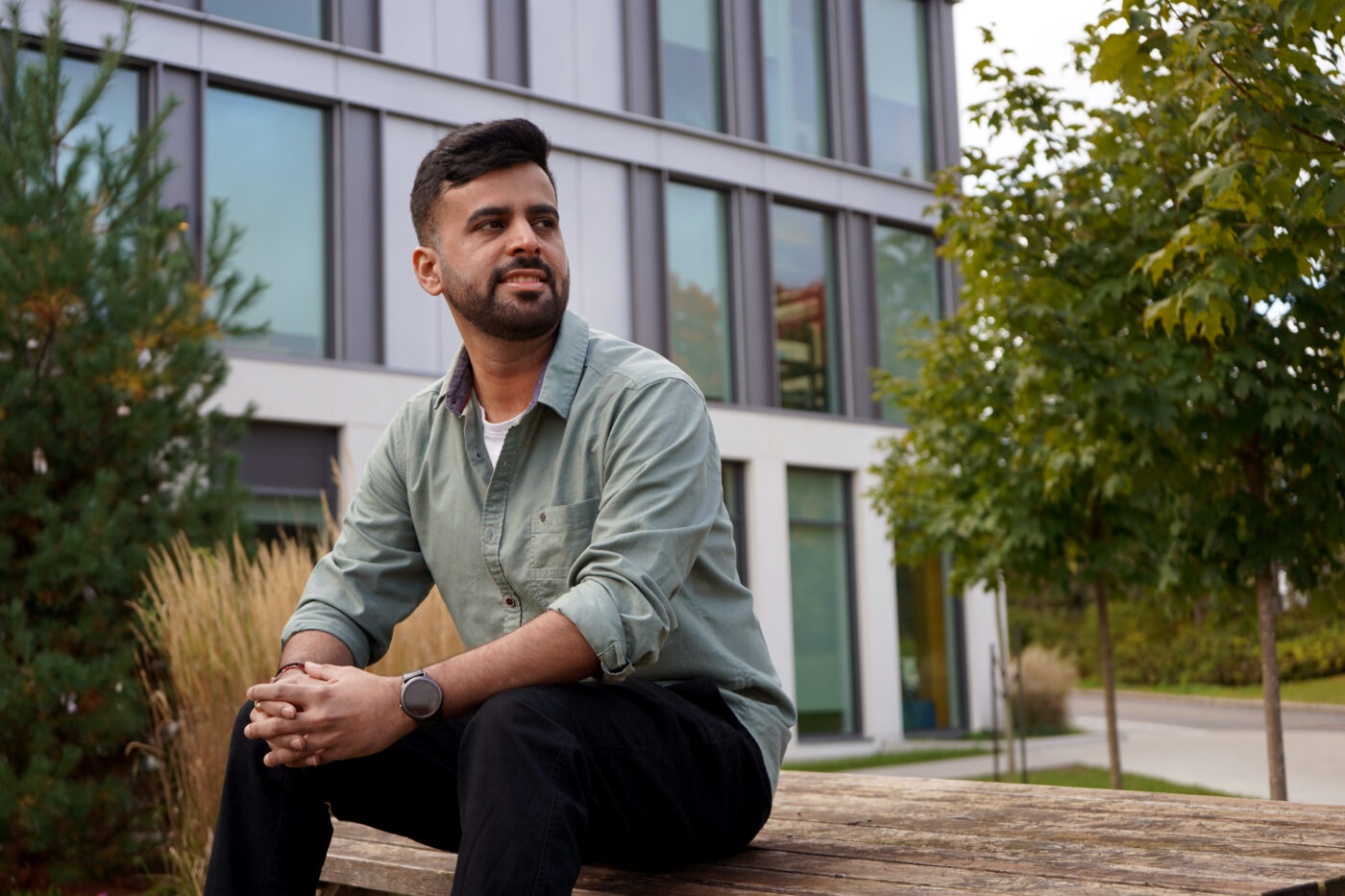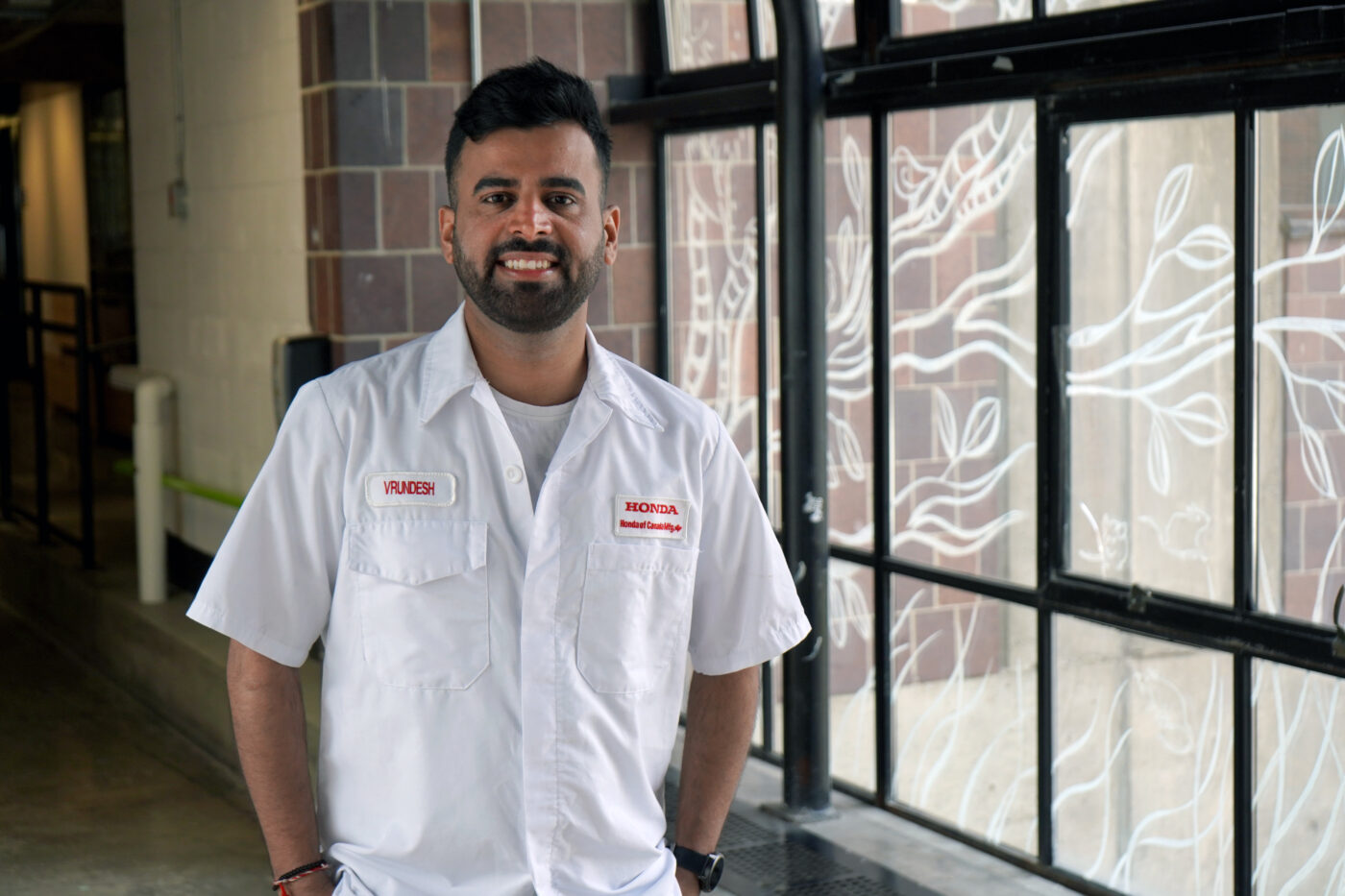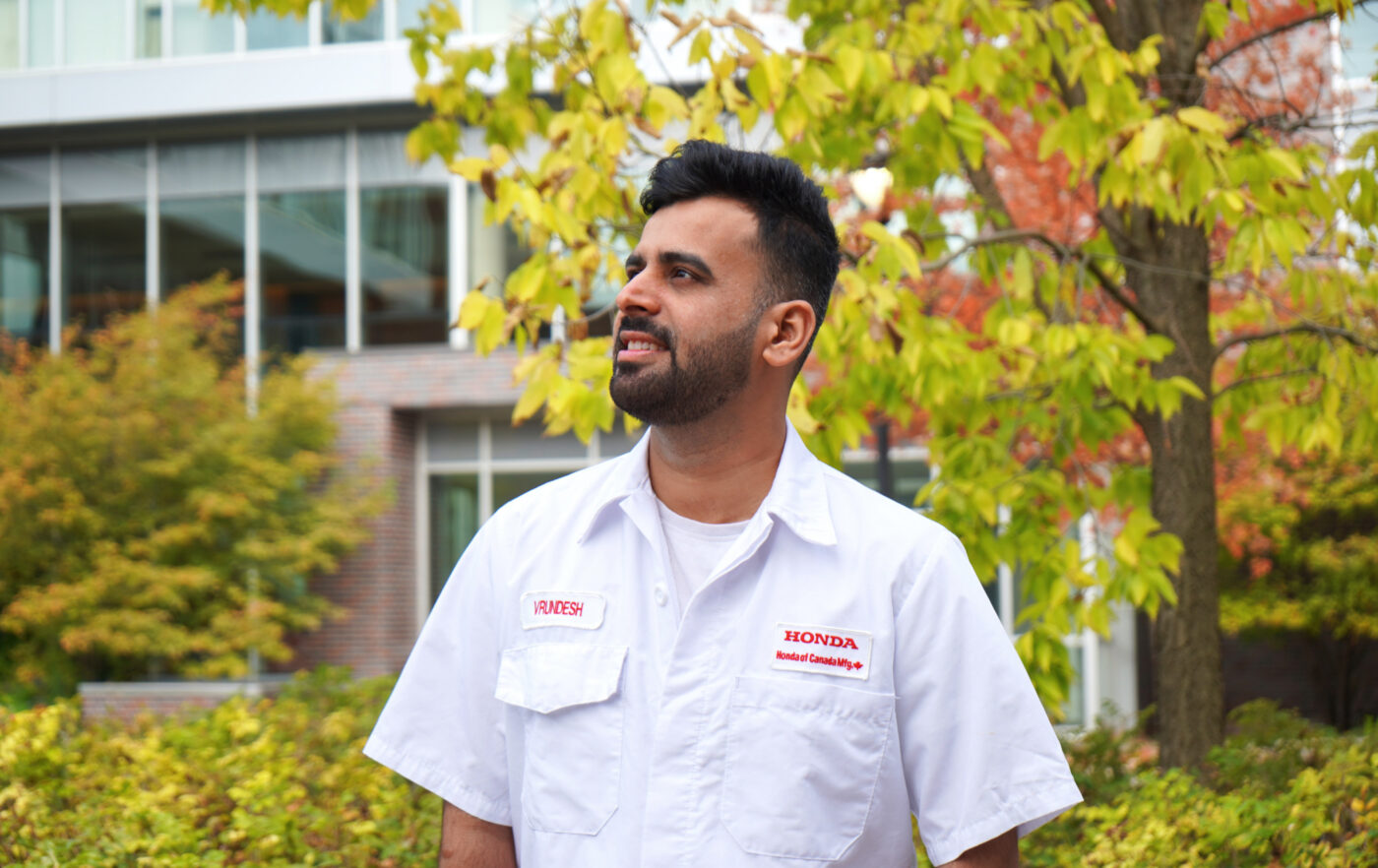Fueling Career Growth with Carleton’s Engineering Practice Program
Master of Engineering – Engineering Practice (EP) Program student Vrundesh Sanjaykumar Rathod has always been captivated by the inner workings of machines. Fueled by countless hours of watching documentaries on technology and reading about mechanical systems while growing up in India, his path to becoming an engineer was clear from an early age.
“I was always fascinated by the mechanics of everyday objects—how a clock ticks, how engines run, and how machines function,” says Vrundesh. “The more I learned, the more driven I became to be a part of that world.”
Before coming to Carleton, Vrundesh earned his bachelor’s degree in mechanical engineering and gained valuable experience in the automotive industry, working on several international projects with Ford Motors. Despite his strong background, he wanted to further advance his career in Canada, which led him to discover Carleton’s EP Program.
“EP’s focus on helping international engineers transition into the Canadian industry immediately caught my attention,” he explains.
“It offered the perfect blend of engineering knowledge and career-ready skills that would help me bridge my international experience with the local market.”

Throughout his first two terms in EP’s mechanical stream, Vrundesh harnessed both practical and career-ready skills through a blend of engineering and non-engineering complementary courses. This combination proved invaluable during his recent internship at Honda in Toronto, where he was given the opportunity to put his skills to the test and take his career to the next level.
A Step into the Canadian Automotive Industry
Securing an internship at one of the world’s largest automotive companies didn’t happen by chance. Vrundesh leveraged Carleton’s Career Services for support in developing his resume and attended career fairs, while also applying directly through company portals during his job search. Honda’s opportunity ultimately came through its official career website, and after a successful interview process, he landed the position.
Once on board, Vrundesh learned about exterior manufacturing processes and focused on identifying critical defects in the product.
“My role at Honda challenged me to apply problem-solving skills in a real-world scenario where precision and a methodical approach were key,” he explains.
“This experience significantly enhanced my ability to think critically and find solutions to prevent recurring issues.”
In addition to developing skills in quality control and manufacturing processes, Vrundesh also learned about change management in manufacturing, where permanent solutions were implemented without disrupting production flow. That not only enhanced his engineering and technical skills but also his ability to collaborate with cross-functional teams, a key aspect of modern engineering roles.

“I was involved in identifying exterior manufacturing quality defects,” he explains. “This required a deep dive into problem-solving and collaboration with different teams. It was a rewarding challenge that enhanced my ability to analyze issues and develop viable solutions”
From Engineering Practice to Real-world Experience
Vrundesh credits the EP Program’s comprehensive curriculum for preparing him to succeed in such a demanding role, drawing from what he learned in courses on project management, engineering communication, and research methods and ethical practice.
“These courses equipped me with the ability to manage projects effectively, communicate complex technical information clearly, and make sound, ethical decisions,” he says. “This holistic approach ensured I was well-prepared to tackle real-world challenges during my internship.”
While the role provided invaluable professional experience, living in Canada’s largest city for a few months also broadened Vrundesh’s exposure to what the country has to offer, giving him a wider perspective on the auto industry and life in Canada.
“Toronto’s fast pace took some adjustment, but the opportunities it provided—especially in the automotive sector—were incredible. It was a rich experience both professionally and personally,” says Vrundesh.

Looking back on his time at Honda, Vrundesh reveals that the most valuable part of the internship was learning about real-world processes. Through this experience, he gained key insights into quality control practices that led to more effective operations at Honda, helping him solidify his passion for manufacturing and quality management.
“Learning about these challenges first-hand and seeing the tangible results of my efforts was incredibly rewarding,” he says.
“It enhanced my problem-solving skills and gave me a deeper appreciation for the importance of quality in manufacturing.”
As Vrundesh continues his studies in the EP program, he’s eager to apply the lessons he’s learned both in the classroom and on the assembly line to pursue an exciting career in Canada’s automotive industry.
For future EP students aiming for similar opportunities, he offers straightforward yet impactful advice: leverage the career-ready skills developed within the program and take full advantage of the many resources Carleton offers.
“Participate in career fairs, workshops, and networking opportunities,” he advises. “Actively engage in group projects and class discussions to further enhance your career-ready skills. Effective communication and teamwork are just as important as engineering expertise in today’s industry!”
Looking ahead, Carleton’s EP Program is poised to expand its hands-on learning opportunities with a co-op option projected to launch in Fall 2025. Designed to enhance students’ career readiness, this addition will enable EP students to gain valuable industry experience and build professional connections alongside their studies.